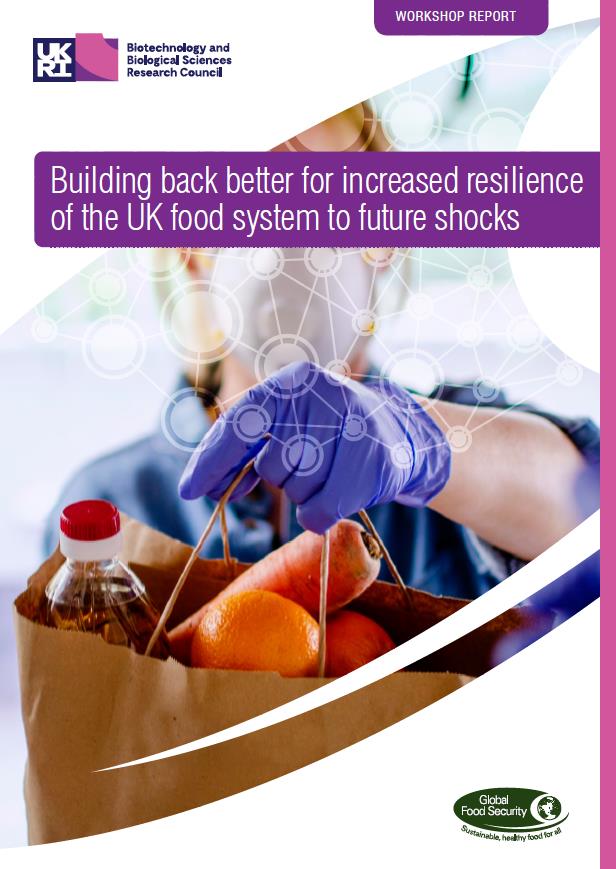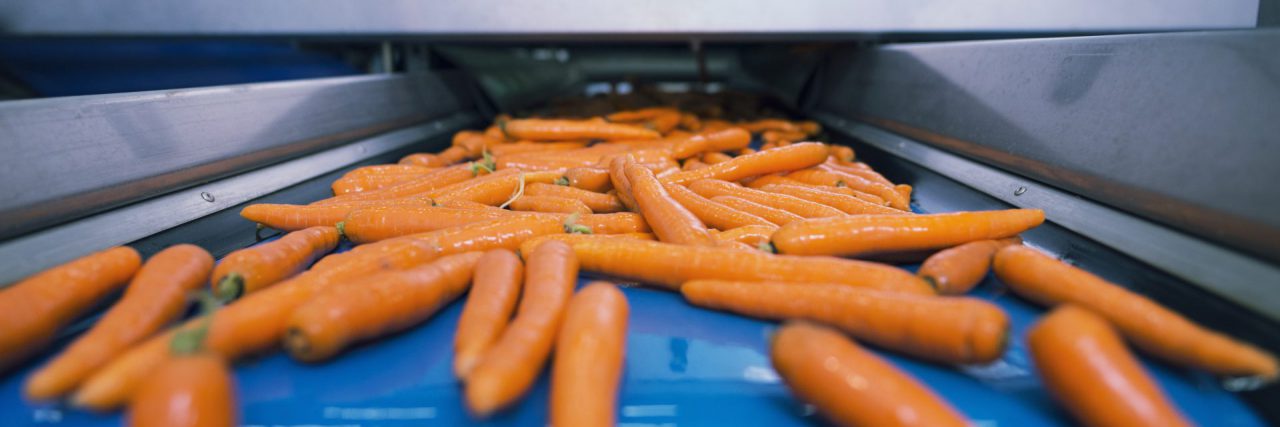The UK food system can be visualised as an intricate and complex web, nestled inside an even larger and more complex global network; perturbations and disruptions to a part of this web can be felt and amplified throughout the network, even in areas of the food system that seem only distantly related. This organisation makes the food system susceptible to disruption. The ongoing COVID-19 pandemic exposed several socio-economic, geographic, and logistical vulnerabilities in our food system, affecting some groups of people and activities more than others. This latest report by the Biotechnology and Biosciences Research Council (BBSRC) and Global Food Security Programme (GFS) asks how we can increase the resilience of the UK food system to future shocks and ‘build back better’ after COVID-19.
Earlier this year GFS and BBSRC held an online workshop with a range of stakeholders involved across the food system to explore what a more resilient UK food system would look like, and what types of shocks the UK food system could face in the future. Attendees were asked to imagine how we could build a post COVID-19 food network that supports a green economic recovery and the availability of safe, healthy and nutritious food for all. Workshop attendees also explored how UK Research and Innovation (UKRI) could support the research and innovation needed to enhance the resilience of the UK food system. This report ‘Building back better for increased resilience of the UK food system to future shocks’ brings together the findings from this workshop.
The report details how disruptions to the UK food system by the first wave of the COVID-19 pandemic were largely driven by changes in demand, and reconfigurations to transport and packaging. Further waves of COVID-19 infections have the potential to impact on the supply of foods, particularly if harvests are affected. Another prominent source of disruption for the UK was climate change related extreme weather events, which have the high-risk potential to perturb many points of the food chain. Other shocks the UK food system could face range from bioterrorism, to the catastrophic loss of ecosystem services. The international nature of the UK food system also makes it vulnerable to disruptions around the globe. Additionally we are able to learn from previous shocks the food system has weathered; the foot-and-mouth outbreak or horse meat contamination scandal demonstrate the reality of threats from animal diseases or food fraud. Crucially, many of these disruptions would be most dangerous if they coincide, and one of the report’s take-home messages is to ensure resilience strategies are broad enough to deal with risks occurring in tandem.
In context of these possible future shocks, the report explores how agriculture, supply chains, and diets could be optimised to increase food system resilience. For example, producers and manufacturers must be able to rapidly ‘re-pivot’ their activities and supply chains after a disruption. This could be achieved by substituting ingredients, finding alternative customers and re-manufacturing products to meet different demands, but precisely how this is done will vary between different companies and businesses.
“The workshop resulted in some fascinating insights from a really diverse group of attendees”, said co-organiser of the workshop and report, Dr Jamie Stone. “It was clear that volatility is only likely to increase in future, and the UK needs to be considering the risk of multiple simultaneous disruptions, whilst making sure it does not erode sustainability in other key areas in the process”, he added.
Future shocks to our food system are inevitable. Identifying what these future risks could be, and increasing the resilience of our food system, whilst simultaneously building in sustainability, is essential in ensuring food security. The report emphasises the importance of interdisciplinary and international research in generating the systematic changes that are needed to ensure food is safe, affordable, and maximises planetary and human health. We must build back better to creating a thriving food system with minimal disruptions, as the next shocks could be just around the corner…

Building back better for increased resilience of the UK food system to future shocks
This report details findings from a cross stakeholder workshop held by BBSRC and GFS. The report highlights the effects of COVID-19 and shocks the UK food system could face in the future, as well as exploring what a resilient UK food system would look like. The report identifies the key research priorities needed to build UK food system resilience and explores how UKRI can help deliver these.
(You can view PDF documents by downloading a PDF reader. We recommend using Google Chrome or Mozilla Firefox web browsers.)


